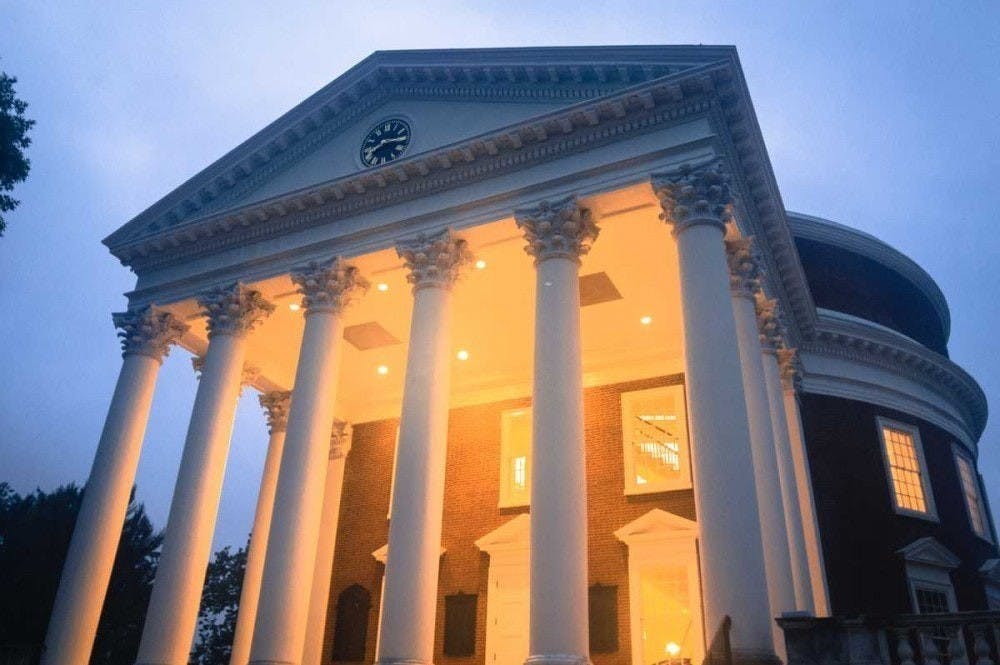Like pretty much anything in life, the University is not perfect. I appreciate U.Va. for its knowledgeable and engaging professors, its spirited student body and the beautiful spaces on Grounds. When cheering in the stands at a football game amongst thousands of screaming students clad in orange and blue or while studying in a quiet nook of Alderman library, I often find myself in awe of this community and the wealth of resources it provides students. I am grateful for this college experience that many, due to factors outside of their control, cannot have. But I can love something and still recognize its flaws.
A few days ago, a fellow Opinion Columnist and friend, Zack Pasciak, wrote a piece advocating for the removal of confederate statues around Charlottesville. One Facebook comment on his article left me particularly dumbfounded:
“Wow, you voluntarily chose to attend a white supremacist school and refuse to leave? Shame on you. You must be a closet racist, or at best, a massive hypocrite...(and don’t say you came to change it because you know that was never even a thought.)”
Receiving hyperbolic, malicious and, frankly, disgusting comments like these is a normal occurrence for The Cavalier Daily’s opinion writers. But this sentiment of “love it or get out” undermines the quintessentially American value of political dissent.
I love my country. Yet, it is deeply flawed. No, I won’t get out. I won’t leave. The fact that I stay here is not submission to the injustices occurring right now, whether it be inside the detention centers at the southern border or within the confines of private prisons. Most of us stay because we have nowhere else to go. But even if we could leave, what good does that serve?
If I can stay and use my vote or my voice to promote a safer, healthier, better America for all, then is that not the moral choice? I would argue it is. The same can be said for the University. Whether it be increasing environmental sustainability, fighting political polarization through debate or promoting racial and social equity, so much of the work students do on Grounds aims to improve the University. These students spend countless hours promoting the betterment of our community, not because they hate it or because they are ungrateful. They care about its future. They want the University to be better for future students. This is not hypocrisy. This is called caring, and I wish more people did it nowadays.
Don’t tell us to shut up and be grateful. Our “gratitude” for the University is evident in the thousands of dollars in debt so many of us have taken on just to be here. Our gratitude is evident in the time spent studying and working to prove that we earned our place here. We strive to improve the University because we recognize that it is good enough to fight for. We invest in improving it because we don’t view our attempts at futile — because every so often, the University listens to the concerns of the community. The new memorial currently under construction dedicated to enslaved labourers or the recent decision to raise the minimum wage for University workers is proof of that.
I didn’t come to the University to change it. I came here because my career path requires a bachelor’s degree and financial restraints narrowed my options to nearby public universities. This decision was not entirely voluntary, but rather a product of my circumstances — as is the case for many of my peers. But now we find ourselves here. My attendance does not and should not require acquiescence to policies or proposals with which I disagree.
Relics of white supremacy exist everywhere across America — the University included. The Rotunda which we admire in all its magnificence exists as a result of a pernicious system of forced labor. If we choose to think critically about the environment around us and listen to the perspectives of our peers, we can place ourselves on a trajectory to becoming the best public university in the country.
Our success as a school depends on students who are willing to call out wrongdoing when they see it. This is especially important at an institution like the University, which takes pride in its emphasis on student self-governance. You may not agree with the grievances we hold, and that’s perfectly reasonable. However, to argue that our decision to attend this school somehow makes our complaints illegitimate or hypocritical is ludicrous.
Esther Eriksson von Allmen is an Opinion Columnist for The Cavalier Daily. She can be reached at opinion@cavalierdaily.com.







